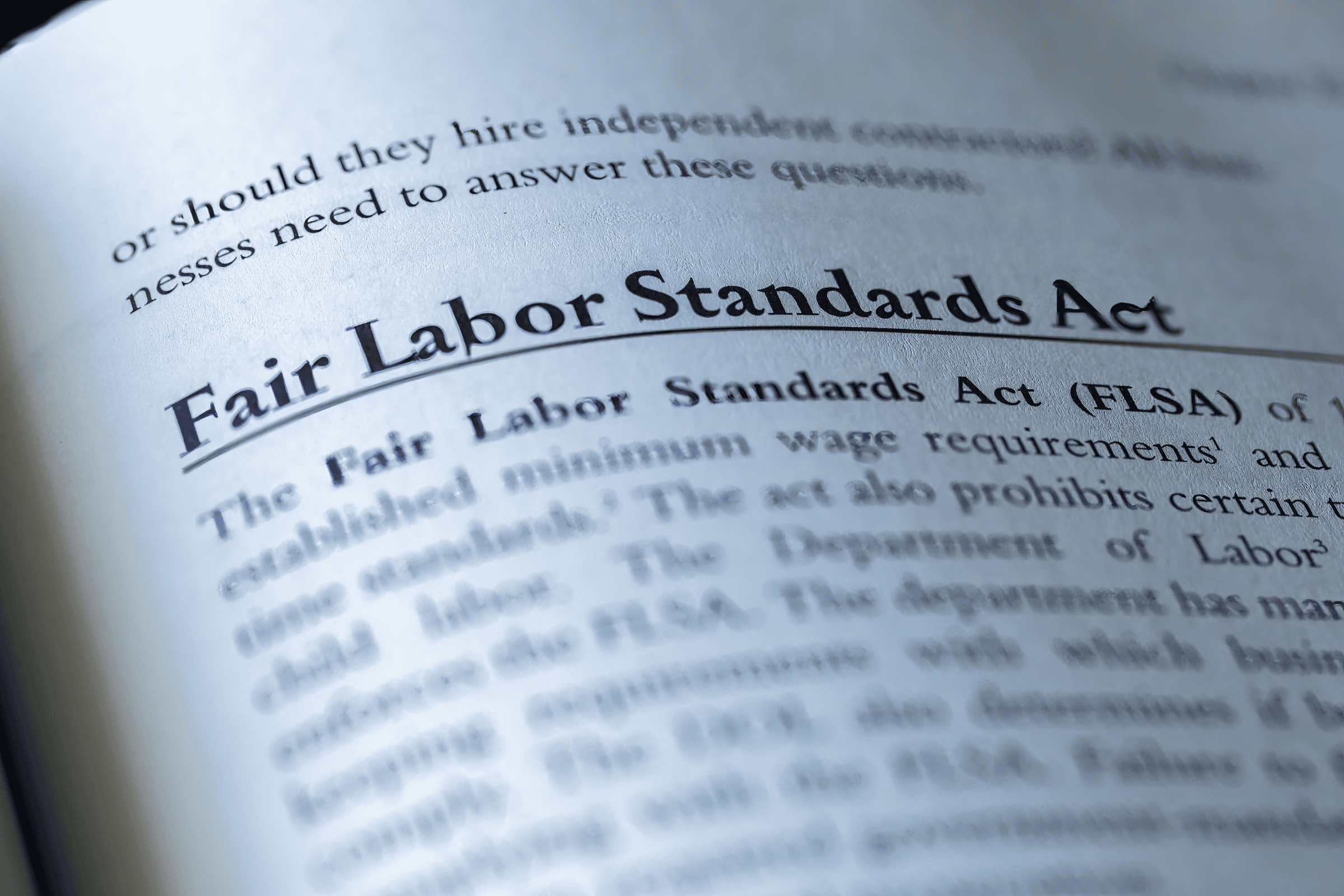Updated FLSA Rules in December 2024
On November 15, 2024, a Texas federal court struck down the Department of Labor’s (“DOL”) regulation raising the Fair Labor Standards Act (“FLSA”) salary threshold for white-collar exemptions to $43,888 in July 2024 and $58,656 in January 2025. The Texas court’s ruling reinstates the previous salary threshold of $35,568 annually ($684 per week) and halts all scheduled increases under the blocked rule.
Background on FLSA
The FLSA provides guidelines for federal requirements such as minimum wage, overtime, equal pay, child labor, and record-keeping. Certain jobs are not subject to minimum wage and overtime requirements. Employees in these roles are known as “exempt employees.” The FLSA white-collar exemptions apply to employees in executive, administrative, professional, and some outside sales and computer-related occupations. To qualify for an exemption, employees must meet the standard salary basis test, the salary level test, and the duties test.
The now-blocked DOL rule sought to increase the minimum salary requirements for the white-collar exemptions in two phases:
- July 1, 2024: $43,888 annually ($844 per week)
- January 1, 2025: $58,656 annually ($1,128 per week)
The now-blocked rule also increased salary thresholds for highly compensated employees and provided automatic salary level updates every three years, starting in 2027.
In the decision entered on November 15, 2024, the Texas federal court struck down the DOL's rule in its entirety. It determined that the DOL overstepped its statutory authority by setting the threshold too high. As a result, the minimum salary level for exempt employees has returned to the threshold set by the first Trump Administration in 2019: $35,568. The DOL may seek to challenge the Court’s ruling on appeal, however, it is likely that any appeal would be abandoned by the incoming Trump administration.
What This Means for You
The January 2025 increase will not go into effect and the July 2024 increase is nullified. Your next steps will likely depend on the actions you’ve already taken. Below are considerations to guide your strategy:
- If you were waiting to make changes for the January 2025 deadline, you are not required to implement any changes at this time.
- If you are a ProService Partner and have already submitted an FLSA change form and still wish to proceed with the adjustments despite the final ruling being struck down, please notify your Service Team by December 6. If we do not hear from you by this date, the changes will not be processed.
- If you have adjusted compensation plans to accommodate the July 2024 increase, employers may consider adjusting certain exempt employee wages as low as $35,568. However, employers should carefully consider reducing wages only months after it was increased, as this could negatively impact the employee’s morale, workplace culture, and retention.
- If you are considering adjusting wages, some states, including Hawaii and California, require written advance notices of wage adjustment.
- If you are considering adjusting wages, it is also important to note that certain states have higher white-collar salary requirements than federal law and therefore employers must comply with the higher state requirement. These states include Alaska, California, Colorado, Maine, New York, and Washington. Hawaii law currently does not have a higher white-collar salary requirement than federal law.
Employers should take this opportunity to review the exemption status of employees. We have provided ProService Partners with guidelines for navigating the requirements of the FLSA and state-specific overtime rules. If you are a ProService Partner and have any questions, please contact your HR support team at 808-394-8878. If you are not a ProService Partner, we can assist you with compliance requirements and effective communications with employees. If you have any questions, please contact our sales team at 808-201-8137.








